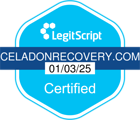How Nutrition Influences Mental Health and Brain Function
In recent years, the intersection of nutrition and mental health has garnered significant attention, propelling the field of nutritional psychiatry to the forefront of healthcare discussions. This burgeoning field suggests that what we eat significantly impacts our mental well-being and brain function, challenging us to consider diet as a key component of mental health management. This article delves into the scientific evidence linking nutrition with mental health and offers practical advice on incorporating a brain-boosting diet into daily life.

Nutrition and Mental Health
At the core of nutritional psychiatry lies the understanding that nutrients such as proteins, omega-3 fatty acids, and carbohydrates directly influence our neurotransmitters, the brain’s chemical messengers. Serotonin, often called the “feel-good” neurotransmitter, is largely produced in the gastrointestinal tract. This production is influenced by the gut microbiome, which thrives on a diet rich in fiber from whole grains, fruits, and vegetables. Essential nutrients like B vitamins, amino acids, antioxidants, and probiotics play pivotal roles in maintaining serotonin levels, thereby regulating mood and emotions.
Neurotransmitters: The Chemical Messengers
Dietary patterns can significantly affect the balance of key neurotransmitters, including serotonin and dopamine, thus impacting mental health. Integrating foods that support neurotransmitter function is crucial for maintaining emotional and cognitive health.
Serotonin: The Mood Regulator
Serotonin levels can be naturally boosted through diet, particularly by consuming foods rich in tryptophan. This supports a positive mood balance and is a key strategy in nutritional psychiatry for promoting mental health.
Omega-3 Fatty Acids: Brain Health Boosters
Omega-3s are vital for brain health, offering anti-inflammatory benefits and supporting neurotransmitter functions, which can help prevent mental health problems and enhance mood.
Probiotics: Guardians of Gut Health
The gut-brain axis highlights the importance of probiotics in mental health, with a balanced gut microbiota linked to reduced risk of mood disorders and improved emotional well-being.
B Vitamins: Essential for Mental Energy
Adequate intake of B vitamins is essential for optimal mental health, influencing energy levels, brain function, and the prevention of mood disorders.
Antioxidants: Protectors of Brain Cells
Consuming a diet rich in antioxidants is linked to a lower risk of cognitive decline and mental health disorders, underscoring their role in a healthy diet for brain health.
Nutritional Keys to Optimize Mental Health
Understanding how our diet influences our mood and mental well-being is essential in the journey towards optimal health. The intricate relationship between the nutrients we consume and their impact on our brain function and neurotransmitter activity highlights the importance of a balanced diet for mental health.
- Omega-3 fatty acids
- Proteins and Amino Acids
- Carbohydrates
The connection between nutrition and mental health is an area of growing interest and research, offering promising avenues for enhancing mental well-being through dietary changes. By understanding the impact of what we eat on our mental state and incorporating a balanced, nutrient-rich diet, we can support our brain function and overall mental health. Remember, while diet plays a crucial role, it’s one of many factors contributing to mental well-being. For personalized advice and dietary planning, consulting a health professional is essential.
About Celadon Recovery
Celadon is comprehensive addiction and mental health treatment center located along the shores of the Caloosahatchee River in Fort Myers, Florida. With a full-continuum of care including detox, residential, and outpatient programs, we are committed to quality substance use and co-occurring disorder care. Call us today at 239-266-2141.










